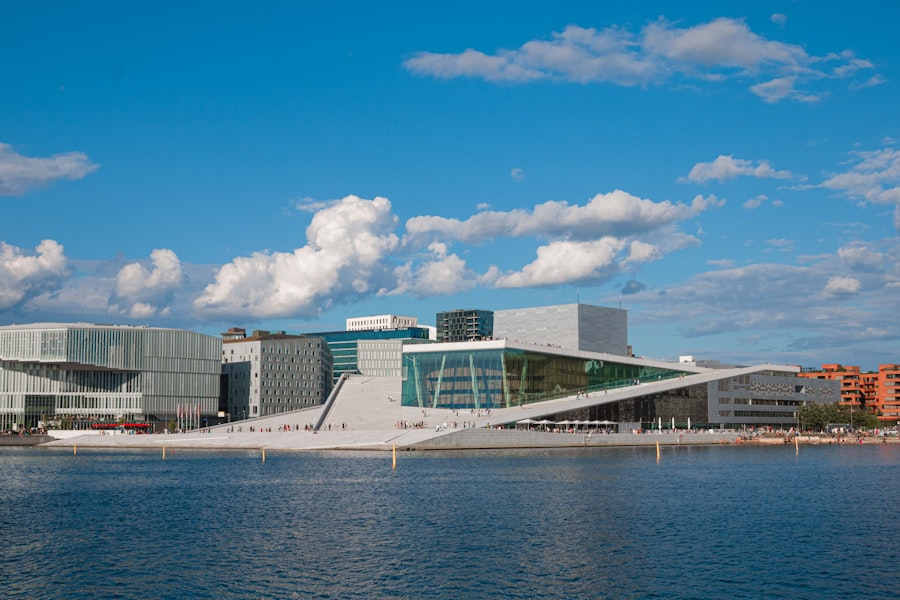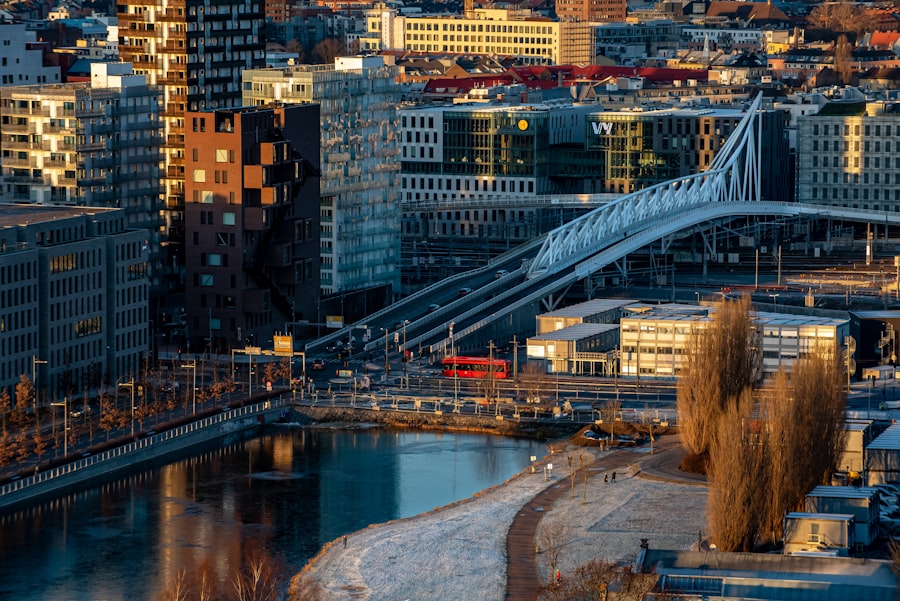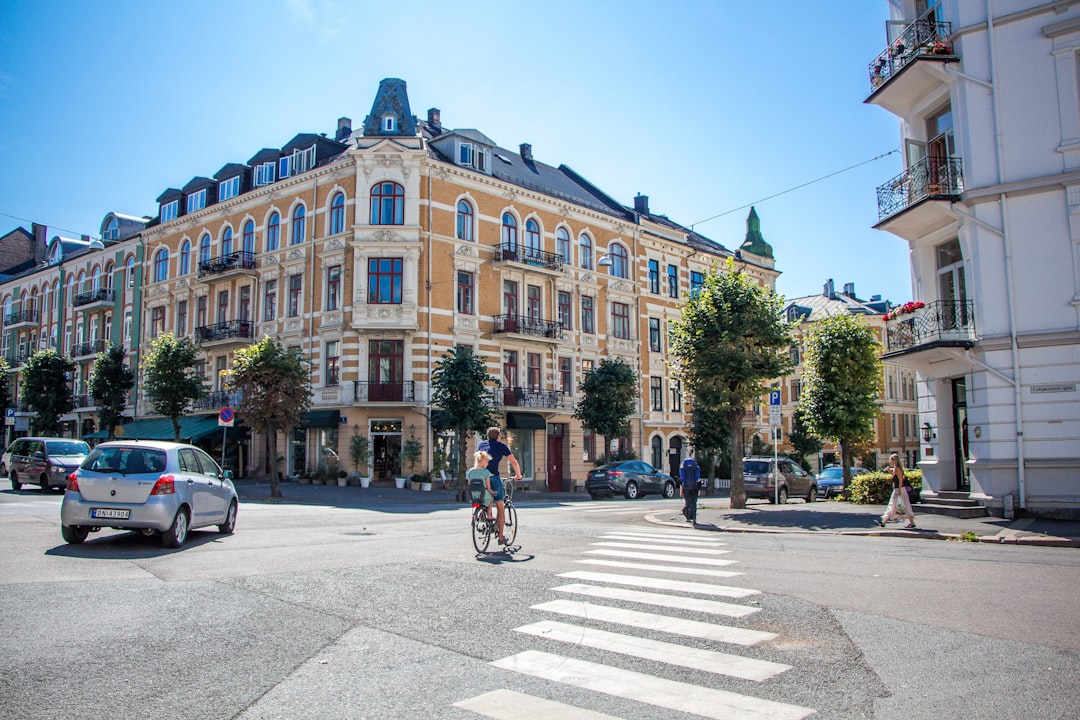The Norwegian healthcare system is renowned for its comprehensive and equitable approach to health services, ensuring that all residents have access to necessary medical care. Funded primarily through taxation, the system operates on the principle that healthcare is a fundamental right, rather than a privilege. This means that individuals can receive treatment without the burden of exorbitant costs, which is particularly beneficial for families expecting a child.
The system is structured around a network of public hospitals and clinics, with general practitioners serving as the first point of contact for patients. In Norway, the healthcare system is divided into primary and specialist care, with a strong emphasis on preventive measures. Expectant parents can benefit from regular check-ups and screenings throughout pregnancy, which are covered by the national health insurance scheme.
This proactive approach not only helps in identifying potential complications early but also fosters a supportive environment for parents-to-be. The integration of various health services ensures that families receive holistic care, encompassing physical, mental, and emotional well-being during this transformative period. Take the first step. Book a consultation with the Norway Relocation Group for your move to Norway. https://norwayrelocation.no/one-hour-strategy-session/
Summary
- The Norwegian healthcare system provides universal access to high-quality prenatal and postnatal care for expectant parents.
- Antenatal classes are available to expectant parents to prepare them for childbirth and parenthood, and are often covered by the healthcare system.
- Expectant parents in Norway have the option to choose between a hospital birth or a home birth, with both options supported by the healthcare system.
- Norway offers generous maternity and paternity leave, allowing parents to take time off work to care for their newborn while receiving financial support.
- Expectant parents in Norway can access financial support through various government schemes to help with the costs of having a baby, such as the maternity grant and child benefit.
Prenatal Care and Antenatal Classes
Prenatal care in Norway is both thorough and accessible, with expectant mothers encouraged to attend regular check-ups throughout their pregnancy. These appointments typically involve monitoring the health of both mother and baby, including ultrasounds and blood tests to assess any potential risks. The healthcare system places a strong emphasis on education, ensuring that parents are well-informed about the stages of pregnancy and what to expect during childbirth.
Antenatal classes are an integral part of prenatal care, providing valuable information on childbirth, breastfeeding, and newborn care. These classes are often offered by hospitals or local health clinics and are designed to prepare parents for the journey ahead. They cover a range of topics, from pain management during labour to the importance of bonding with the newborn.
Additionally, these classes provide an opportunity for expectant parents to connect with others in similar situations, fostering a sense of community and support.
Choosing a Birth Place: Hospital or Home Birth

When it comes to choosing a birthplace in Norway, expectant parents have several options, including hospitals and home births. Hospitals are equipped with advanced medical facilities and staff trained to handle various complications that may arise during childbirth. Many hospitals offer private rooms and family-friendly policies, allowing partners to be present during labour and delivery.
The availability of pain relief options and immediate access to neonatal care can provide peace of mind for many parents. On the other hand, home births have gained popularity in recent years as more families seek a personalised and intimate birthing experience. In Norway, home births are supported by midwives who provide comprehensive care throughout the pregnancy and delivery process.
This option allows parents to remain in a familiar environment, which can contribute to a more relaxed atmosphere during labour. However, it is essential for parents considering this route to discuss their plans with healthcare professionals to ensure that they are well-informed about the potential risks and benefits.
Maternity and Paternity Leave in Norway
Norway is known for its generous parental leave policies, which are designed to support families during the crucial early months of a child’s life. Maternity leave typically lasts for 46 weeks at full pay or 56 weeks at a reduced rate, allowing mothers ample time to recover from childbirth and bond with their newborns. This extensive leave period reflects the country’s commitment to promoting family welfare and child development.
Paternity leave is equally progressive, with fathers entitled to 15 weeks of paid leave. This policy encourages fathers to take an active role in childcare from the outset, fostering a sense of shared responsibility between parents. The flexibility of parental leave allows families to tailor their arrangements according to their specific needs, whether that means taking leave consecutively or splitting it between both parents.
This approach not only strengthens family bonds but also contributes to gender equality in the workplace.
Accessing Financial Support for Expectant Parents
In addition to generous parental leave policies, Norway offers various financial support schemes for expectant parents. The Child Benefit scheme provides monthly payments to families with children under 18 years old, helping to alleviate some of the financial burdens associated with raising a child. This support is designed to ensure that all children have access to basic necessities, regardless of their family’s economic situation.
Expectant parents may also be eligible for additional benefits such as maternity grants or housing allowances, depending on their circumstances. These financial aids are intended to support families during the transition into parenthood, allowing them to focus on nurturing their newborns without undue financial stress. The Norwegian government’s commitment to supporting families reflects its understanding of the challenges that come with parenthood and its dedication to fostering a healthy environment for children.
Registering the Birth and Obtaining a Birth Certificate

Once a child is born in Norway, it is essential for parents to register the birth promptly. This process typically involves notifying the local tax office within a week of the birth, which is crucial for obtaining a birth certificate. The birth certificate serves as an official document that confirms the child’s identity and is necessary for various administrative purposes, such as enrolling in school or applying for benefits.
The registration process is straightforward and can often be completed online or in person at designated offices. Parents will need to provide relevant information such as the child’s name, date of birth, and details about both parents. Once registered, families will receive a birth certificate that can be used for legal identification purposes throughout the child’s life.
This administrative step is vital in ensuring that children have access to their rights and entitlements within the Norwegian system.
Vaccinations and Healthcare for Newborns
Healthcare for newborns in Norway is comprehensive and prioritises preventive measures such as vaccinations. The Norwegian Institute of Public Health provides a vaccination programme that covers essential immunisations against various diseases, including measles, mumps, rubella, and whooping cough. These vaccinations are administered at specific intervals during the first year of life and are crucial in safeguarding children’s health.
In addition to vaccinations, newborns receive regular health check-ups through the national healthcare system. These appointments allow healthcare professionals to monitor growth and development while addressing any concerns parents may have regarding their child’s health. The emphasis on preventive care ensures that potential health issues are identified early on, allowing for timely intervention when necessary.
Postpartum Support and Mental Health Care
Postpartum support is an essential aspect of maternal care in Norway, recognising that new mothers may face various challenges after childbirth. The healthcare system provides access to mental health services aimed at addressing issues such as postpartum depression or anxiety. Healthcare professionals are trained to identify signs of mental health struggles and can offer appropriate referrals or support services.
In addition to professional help, many communities offer support groups where new mothers can share their experiences and connect with others facing similar challenges. These groups provide a safe space for mothers to discuss their feelings and seek advice from peers who understand the complexities of motherhood. The emphasis on mental health care reflects Norway’s commitment to ensuring that mothers receive holistic support during this critical period.
Parental Education and Support Groups
Parental education plays a vital role in preparing families for the challenges of raising children in Norway. Various organisations offer workshops and courses designed to equip parents with essential skills and knowledge related to child development, discipline strategies, and effective communication techniques. These educational opportunities empower parents to make informed decisions about their parenting styles while fostering healthy relationships with their children.
Support groups also play an important role in providing emotional assistance and practical advice for new parents. These groups often focus on specific topics such as breastfeeding, sleep training, or managing toddler behaviour. By connecting with other parents facing similar challenges, individuals can share experiences and learn from one another’s successes and struggles.
This sense of community can be invaluable in navigating the complexities of parenthood.
Navigating the Norwegian Childcare System
The Norwegian childcare system is designed to support working parents while ensuring that children receive high-quality care and education from an early age. Parents have access to various childcare options, including public kindergartens (barnehage) and private institutions. Public kindergartens are subsidised by the government, making them an affordable choice for many families.
Enrolment in childcare facilities typically begins when children reach one year old, although some parents may choose to start earlier if they require additional support while returning to work. The curriculum in Norwegian kindergartens focuses on play-based learning, promoting social skills and creativity while laying the foundation for future education. This approach reflects Norway’s commitment to fostering holistic development in young children.
Legal Rights and Responsibilities for Parents in Norway
In Norway, legal rights and responsibilities for parents are clearly defined within the framework of family law. Both parents have equal rights regarding custody arrangements and decision-making processes concerning their children’s welfare. This legal structure promotes shared responsibility between mothers and fathers while ensuring that children’s best interests remain at the forefront.
Parents are also entitled to seek legal recourse if they believe their rights are being infringed upon or if disputes arise regarding custody or visitation arrangements. The Norwegian legal system prioritises mediation as a means of resolving conflicts amicably before resorting to court proceedings. This approach reflects a broader societal commitment to fostering healthy family dynamics while protecting children’s rights.
As families navigate these various aspects of parenthood in Norway, they may find themselves seeking additional resources or support systems that can enhance their experience. For those interested in learning Norwegian or improving their language skills as they integrate into Norwegian society, the NLS Norwegian Language School in Oslo offers tailored courses designed specifically for newcomers and residents alike. With experienced instructors and a supportive learning environment, NLS provides an excellent opportunity for parents to enhance their communication skills while engaging with their community effectively.
In conclusion, understanding the intricacies of parenting in Norway involves navigating a well-structured healthcare system that prioritises both physical and mental well-being for families. From prenatal care through postpartum support, expectant parents can access a wealth of resources designed to facilitate a smooth transition into parenthood while ensuring that children receive high-quality care from an early age. As families embark on this journey together, they can take advantage of educational opportunities like those offered at NLS Norwegian Language School in Oslo—an invaluable resource for enhancing language skills and fostering connections within their new community.
Learn more about the Norwegian classes at the NLS Norwegian Language School in Oslo

